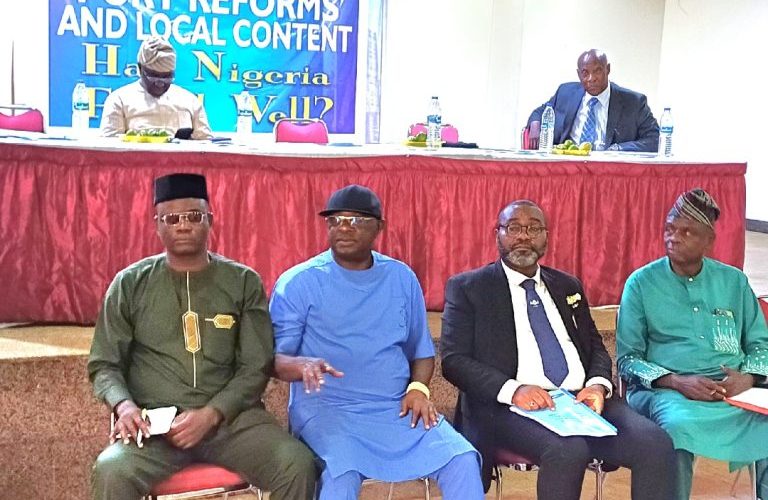Stakeholders in Nigeria’s maritime sector have come out swinging against the country’s port reforms, accusing the government and foreign concessionaires of sidelining indigenous operators and undermining local content development.
At the recent PortNews Summit 2024 in Lagos, stakeholders lamented the erosion of Nigeria’s maritime legacy, citing the decline of Nigerian-owned vessels and bonded terminals.
They argued that the reforms, introduced in 2006, have prioritized foreign interests over Nigerian operators, leaving them struggling to compete.
Capt. Emmanuel Ihenacho, a former Minister of Interior, acknowledged that while the reforms brought efficiency and private investments, they were poorly implemented. “The landlord model has prioritized foreign interests over Nigerians,” he said.
Stakeholders also criticized the poor enforcement of the Cabotage Act, which is meant to prioritize Nigerian-flagged vessels in coastal trade. Dr. Muda Yusuf, CEO of the Centre for the Promotion of Private Enterprise (CPPE), described the law as a “paper tiger” due to poor implementation.
To address these issues, stakeholders proposed several solutions, including renegotiating concession agreements to mandate patronage of indigenous bonded terminals, enforcing compliance with the Cabotage Act, and introducing executive orders to protect local jobs.
The summit ended with a unanimous call for reforms to prioritize local operators and restore Nigeria’s maritime sector to its former glory.
Stakeholders warned that failure to address these issues would deepen the marginalization of Nigerians in the sector and jeopardize the nation’s economic sovereignty.

